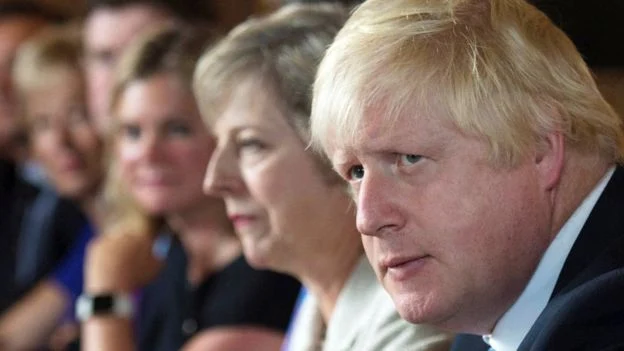Campaigners have appealed against a
ruling which gave the go-ahead for four controversial wind farm projects
in the firths of Forth and Tay.
RSPB Scotland had objected to the developments which, they say, threaten thousands of seabirds.
After winning the initial challenge, an appeal was lodged by Scottish ministers and the ruling was overturned last month.
The charity has confirmed it has started a legal challenge.
It is seeking permission from the Inner House of the Court of Session to appeal to the UK Supreme Court.
The
Scottish government has declined to comment on the legal action, but
stressed its belief in the importance of offshore wind projects.
After last month's ruling, one of the developers, Mainstream
Renewable Power, said it would immediately press on with construction
work.
The company estimates its project alone would create 500 construction jobs and more than 100 permanent operational roles.
The Inch Cape, Neart na Gaoithe and Seagreen Alpha and Bravo projects were approved by Scottish ministers in 2014.
It has been estimated that they could generate up to £1.2bn for the Scottish economy and power 1.4 million homes.
But RSPB Scotland raised concerns that the wind farms risked birds like puffins, gannets and kittiwakes.
"However, we are concerned that this judgment could set worrying precedents for the protection of wildlife across Scotland and the UK.
"In light of our concerns we have decided to start the appeal process by applying to the Inner House for permission to appeal to the Supreme Court."
A statement from Mainstream Renewable Power said: "We are committed to working with all our partners, including the RSPB, to deliver this nationally-significant infrastructure project and the vitally important jobs and investment that it will create.
"Neart na Gaoithe is a £2bn project capable of supplying all the homes in a city the size of Edinburgh with clean energy and is the only project out of the four offshore wind projects in the Forth and Tay to hold a Contract for Difference (CfD)."
A Scottish government spokesman said: "Protecting the environment and fighting climate change are key priorities for the Scottish government.
"Offshore wind has an important role to play in Scotland's energy future, and offers valuable opportunities to reduce the carbon emissions which lead to climate change and create jobs too.
BBC NEWS
The company estimates its project alone would create 500 construction jobs and more than 100 permanent operational roles.
The Inch Cape, Neart na Gaoithe and Seagreen Alpha and Bravo projects were approved by Scottish ministers in 2014.
It has been estimated that they could generate up to £1.2bn for the Scottish economy and power 1.4 million homes.
But RSPB Scotland raised concerns that the wind farms risked birds like puffins, gannets and kittiwakes.
'Worrying precedents'
Director Anne McCall said: "RSPB Scotland continues to fully support the development of renewable energy and the vast majority of projects continue to pose no significant threat to birds or other wildlife."However, we are concerned that this judgment could set worrying precedents for the protection of wildlife across Scotland and the UK.
"In light of our concerns we have decided to start the appeal process by applying to the Inner House for permission to appeal to the Supreme Court."
A statement from Mainstream Renewable Power said: "We are committed to working with all our partners, including the RSPB, to deliver this nationally-significant infrastructure project and the vitally important jobs and investment that it will create.
"Neart na Gaoithe is a £2bn project capable of supplying all the homes in a city the size of Edinburgh with clean energy and is the only project out of the four offshore wind projects in the Forth and Tay to hold a Contract for Difference (CfD)."
Climate change
It added: "Rapid advances in offshore wind technology have enabled us to reduce the number of turbines to be installed from 125 in the original consent application in 2012, to a maximum of 64 turbines today."A Scottish government spokesman said: "Protecting the environment and fighting climate change are key priorities for the Scottish government.
"Offshore wind has an important role to play in Scotland's energy future, and offers valuable opportunities to reduce the carbon emissions which lead to climate change and create jobs too.
BBC NEWS




























